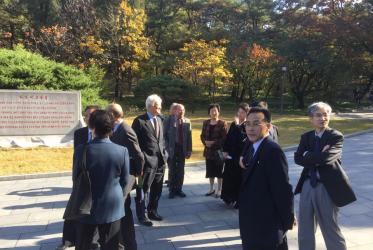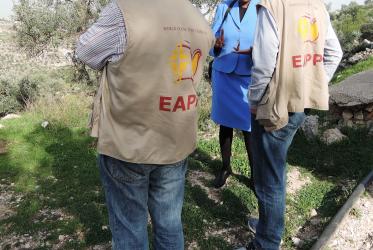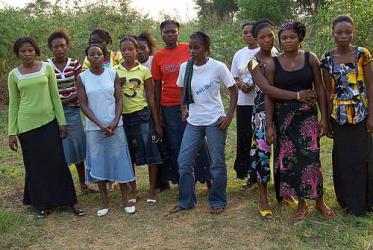Displaying 101 - 120 of 146
17 November 2015
Local and global work saves lives
22 October 2015
A presence to accompany vulnerable communities
31 March 2015
WCC calls for urgent action in Iraq
08 August 2014
The forgotten story of the Nuba Mountain people
18 June 2014
Church in Syria provides aid to conflict victims
21 February 2013
Water conflicts pose threat to global peace
04 July 2011
Iraqi church leaders call for atmosphere of security in Iraq
18 February 2011
IEPC plans practical approach to peace
28 August 2009














